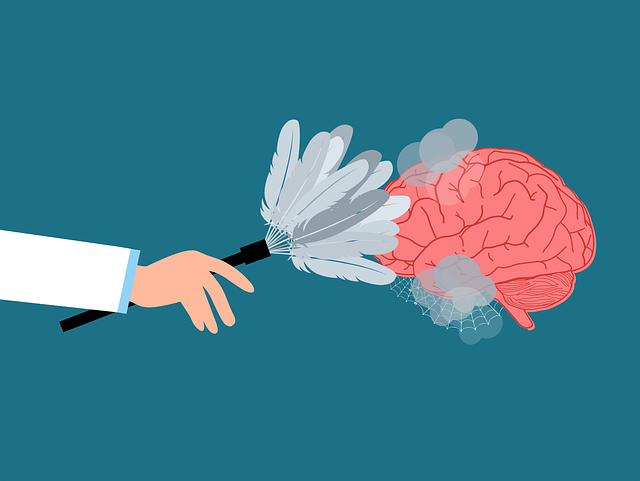Substance abuse risk can be significantly reduced by addressing the psychological roots, especially in individuals with mental health challenges like PTSD. This involves tailored therapy to process trauma, develop healthier coping mechanisms, and build resilience. Strategies include cognitive behavioral therapy (CBT), social skills training, community outreach, lifestyle changes, mindfulness meditation, support groups, medication-assisted therapy, and alternative therapies. By holistically addressing these factors, communities can empower individuals to overcome substance abuse and promote mental wellness through effective PTSD treatment.
Substance abuse poses significant risks, but proactive strategies can mitigate these dangers. This article explores comprehensive risk reduction techniques, focusing on understanding the roots of addiction, the power of therapy, and targeted interventions like treatment for Post-Traumatic Stress Disorder (PTSD). We delve into lifestyle changes, building support networks, and a range of medications and alternative treatments. By integrating these strategies, individuals can navigate their recovery journey with enhanced tools and hope for a healthier future.
- Understanding Substance Abuse and Its Roots
- The Role of Therapy in Risk Reduction
- Targeted Therapies for Post-Traumatic Stress Disorder (PTSD)
- Lifestyle Changes and Support Network Building
- Medication and Alternative Treatments: A Comprehensive Look
Understanding Substance Abuse and Its Roots

Substance abuse is a complex issue that often stems from underlying psychological and emotional factors. Understanding these roots is crucial in developing effective risk reduction strategies. Many individuals turn to drugs or alcohol as a coping mechanism for various mental health challenges, including Post-Traumatic Stress Disorder (PTSD). Therapy for PTSD can play a pivotal role in addressing the core issues contributing to substance abuse, offering tools to manage stress and process traumatic experiences.
The journey towards recovery involves fostering inner strength and developing healthier coping mechanisms. This can be achieved through various means, such as Stress Management Workshops Organization, which provide individuals with practical skills to navigate stressful situations. Additionally, Mental Health Policy Analysis and Advocacy efforts highlight the importance of systemic support, ensuring accessible resources for those at risk or struggling with substance abuse. By addressing both the individual’s inner world and the broader societal factors, a holistic approach to risk reduction can be realized, empowering people to build resilience and reclaim their lives.
The Role of Therapy in Risk Reduction

Therapy plays a pivotal role in risk reduction strategies for substance abuse, especially when addressing the root causes that often underlie addictive behaviors. For individuals with a history of trauma, Therapy for Post-Traumatic Stress Disorder (PTSD) is highly effective. Mental Health Policy Analysis and Advocacy has highlighted the importance of accessible therapy options, ensuring those at risk have the support they need. Through evidence-based practices, therapists help clients process traumatic experiences, develop healthier coping mechanisms, and build resilience. This not only reduces the likelihood of substance abuse but also promotes overall mental wellness.
Effective communication strategies within therapy sessions are key to fostering trust and encouraging honest expression of emotions. Therapists skilled in these techniques create a safe space for individuals to explore their feelings without judgment, allowing them to confront and overcome challenges that may drive substance abuse. By integrating Communication Strategies, therapy becomes a powerful tool in prevention, enabling individuals to take control of their mental health and make informed decisions regarding their well-being.
Targeted Therapies for Post-Traumatic Stress Disorder (PTSD)

Post-Traumatic Stress Disorder (PTSD) is a significant mental health challenge often associated with substance abuse. Targeted therapies play a crucial role in managing and reducing the risk of relapse for individuals struggling with both disorders. Empathy-building strategies, such as cognitive behavioral therapy (CBT), have proven effective in helping patients process traumatic memories and develop healthier coping mechanisms. CBT encourages individuals to challenge negative thought patterns and engage in activities that foster personal growth and resilience.
Additionally, social skills training is an essential component of PTSD therapy. This involves learning and practicing communication techniques, which can help individuals navigate interpersonal relationships with confidence and reduce the risk of isolation—a common trigger for substance abuse. Community outreach program implementation also plays a vital role by providing support networks and resources, fostering a sense of belonging, and promoting overall well-being. These strategies collectively contribute to the comprehensive treatment of PTSD, thereby minimizing the likelihood of substance abuse relapses.
Lifestyle Changes and Support Network Building

Making significant lifestyle changes is a crucial component of risk reduction for substance abuse. Individuals should focus on adopting healthier habits such as regular exercise, balanced nutrition, and sufficient sleep. These foundational aspects not only improve overall well-being but also enhance resilience to stress and cravings. Incorporating mindfulness meditation practices can be particularly beneficial; research has shown that it aids in managing anxiety and emotions, which are often underlying factors contributing to substance misuse.
Building a strong support network is another vital strategy. Connecting with like-minded individuals who offer encouragement and understanding can significantly reduce the risk of relapse. This includes joining support groups, seeking therapy for post-traumatic stress disorder (PTSD) if needed, and fostering open communication with family and friends. Healthcare provider cultural competency training plays a crucial role here, ensuring that individuals receive culturally sensitive care tailored to their unique backgrounds. Moreover, mental illness stigma reduction efforts contribute to creating an environment where people feel comfortable seeking help without fear of judgment.
Medication and Alternative Treatments: A Comprehensive Look

In addressing substance abuse, medication and alternative treatments offer a comprehensive approach to recovery. For individuals grappling with addiction alongside co-occurring mental health disorders, such as Therapy for Post-Traumatic Stress Disorder (PTSD), tailored treatment plans can significantly enhance outcomes. Medication-assisted therapy (MAT) combines behavioral therapies with medications like methadone or buprenorphine to reduce cravings and ease withdrawal symptoms, while also addressing the underlying psychological issues.
Beyond medication, alternative treatments like mindfulness-based stress reduction (MBSR), yoga, and art therapy can complement traditional approaches. These methods focus on Stress Management and Burnout Prevention Strategies for Healthcare Providers by promoting relaxation, improving coping Skills Development, and fostering a sense of well-being. Integrating these diverse therapeutic options not only enhances the effectiveness of treatment but also empowers individuals to adopt healthier lifestyles, reducing the risk of relapse and supporting long-term recovery.
Substance abuse is a complex issue, often rooted in underlying mental health conditions such as PTSD. By integrating various risk reduction strategies, including therapy, lifestyle changes, and alternative treatments, individuals can effectively manage their vulnerability and lead healthier lives. Specifically, targeted therapies for PTSD, combined with building a robust support network, offer promising avenues for long-term recovery. In summary, a holistic approach that incorporates both traditional and innovative treatment methods is key to mitigating substance abuse risks and fostering resilience.














